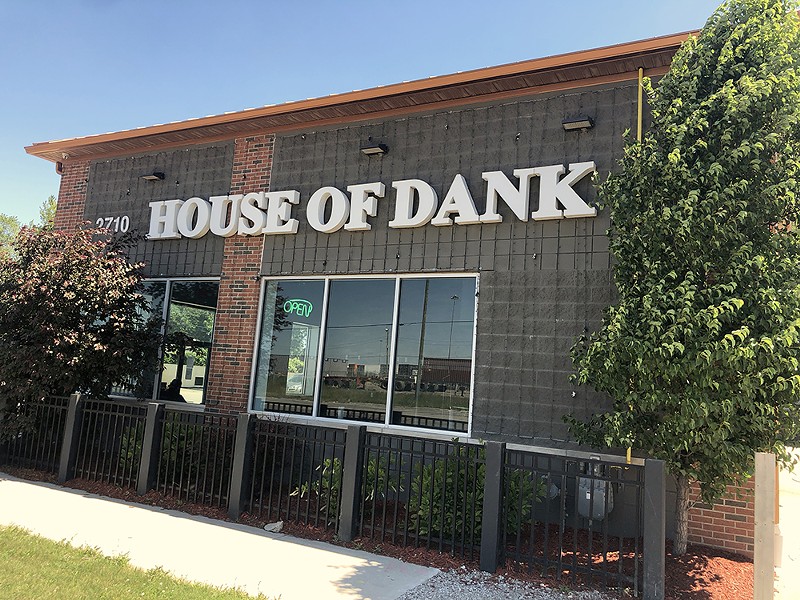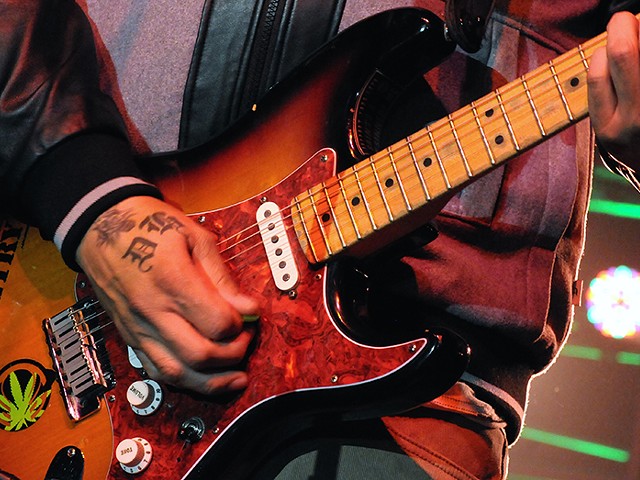
Steve Neavling
House of Dank, which operates four medical marijuana dispensaries in Detroit, sued the city over its revised cannabis ordinance.
A Michigan-based marijuana company is asking a judge to immediately declare that the city of Detroit’s new recreational cannabis ordinance violates state law.
House of Dank, which operates four medical marijuana dispensaries in Detroit, sued the city over its revised ordinance on May 11.
Now the company’s attorney, Kevin M. Blair of the Honigman law firm, is requesting a declaratory judgment that would effectively stop the city from processing licenses for recreational cannabis businesses.
House of Dank argues that the city’s ordinance violates state law by preventing existing medical cannabis dispensaries from getting a recreational license until 2027.
The ordinance’s provision will drive medical cannabis dispensaries out of business because they can’t compete with recreational businesses, the lawsuit states.
“For years now, Plaintiffs have spent considerable time, energy, and money providing safe and reliable access to legal cannabis for medical marijuana patients,” the motion states. “Many of them have been operating at a loss and are struggling to survive. Now, despite having demonstrated years-long regulatory compliance, as well as economic, civic, charitable, and workforce commitment to the City and its residents, the City has turned its back on these businesses, and effectively, ensured their ruin.”
Even if some medical cannabis dispensaries can hang on until 2027, there may be no recreational licenses remaining, the lawsuit argues.
It’s the second lawsuit filed against the city over the provision that prevents medical cannabis dispensaries from getting recreational licenses for at least five years.
This is the city’s second attempt at drafting an ordinance designed to give preference to Detroiters, who have been disproportionately impacted by the war on drugs. The first ordinance was temporarily halted after a judge decided it “gives an unfair, irrational, and likely unconstitutional advantage to long-term Detroit residents over all other applicants.”
Detroit City Council returned to the drawing board and drafted a new ordinance about a year later that sought to avoid another lawsuit by offering licenses to non-Detroiters. Under the new ordinance, approved on April 5, the city offers two tracks for licenses so that “equity” and “non-equity” applicants aren’t competing against each other.
But the new ordinance goes too far, the lawsuits argue, by refusing to let medical cannabis dispensaries get a recreational license for at least five years.
The new ordnance is nothing more than a disguised version of the first one, Blair argues in the motion.
“The City wasted almost another entire year, attempting to find other ways to funnel the revenue from marijuana sales to its preferred resident business owners, rather than adhering to (the state’s recreational marijuana law) and allowing the existing medical stores to participate in the adult-use market,” the motion states. “Indeed, the City made a conscious decision to ignore the unambiguous command of (the state law), and instead unapologetically doubled down on its efforts to simply rephrase and disguise the unconstitutional ‘legacy’ preferences as ‘equity’ preferences.”
Medical cannabis dispensaries have been struggling since recreational marijuana became legal. Fewer people are getting medical cannabis cards because they cost money and take time to obtain. The number of active medical cards fell from more than 264,000 in 2020 to fewer than 232,000 so far this year, a 12.2% decline, according to the state’s Marijuana Regulatory Agency (MRA).
Medical cannabis sales fell even harder, from $38.1 million in February 2021 to $26 million in February 2022, a 32% drop.
That has spelled serious trouble for the medical cannabis dispensaries in Detroit that have hung on and waited for the city to allow recreational sales.
“Without the ability to sell adult-use marijuana, (medical cannabis businesses) will not be able to compete with the City’s new, adult-use marijuana retailers,” the motion states. “As a result, the City’s existing medical marijuana stores will be driven out of business … and the individuals who rely on them will be deprived of the medicinal product they require.”
The city of Detroit declined to comment on the latest motion.
Stay connected with Detroit Metro Times. Subscribe to our newsletters, and follow us on Google News, Apple News, Twitter, Facebook, Instagram, Reddit, or TikTok.






